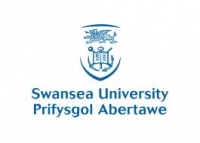The MLaw is a modular programme, with students completing first the undergraduate programme in years 1-3, followed by Masters level programme in year 4.
The first two years include core modules for a qualifying law degree. Optional modules in Years 2 and 3 allow students to specialise in human rights. Year 4 takes this specialism even further.
The following are examples of modules offered to students (modules available for selection will be dependent on contingencies, e.g. whether a module leader is in study leave).
Human Rights and Environment, Climate Change and Sustainability
Trade, Investment and Human Rights
Human Rights and the Media
Human Rights and Family Law
Impact Assessment and Human Rights
Human Rights of Children
Human Rights and Poverty
Human Rights and Terrorism on-line
Human Rights and Medical Law
Human Rights and Employment
The MLaw will open the door to a range of careers, including in:
Human rights institutions: increasingly international and regional human rights institutions are seeking to support, monitor and influence State policy and social arrangements. Potential graduate destinations include: the United Nations and the Council of Europe as well as other regional institutions.
The public sector, including government at all levels: human rights are a key responsibility of government at all levels Potential graduate destinations include: civil service, regional, national and sub-national government, local authorities and other public bodies, and, political and policy advice work.
The private sector: human rights are increasingly the concern of the private sector in the realm of socially responsible capitalism. Potential graduate destinations include: global business (including institutions such as the World Bank); the business sector (from large scale business such as the banking sector, to smaller concerns seeking to appeal to the ethical consumer).
The NGO sector: non-governmental agencies are well-established stakeholders in human rights. Potential graduate destinations include: international NGOS (e.g. UNICEF, Oxfam); regional or local level NGOS (the sector is vast and represents a significant opportunity for graduates).
Research and academia: research on human rights is a well-established concern for academia. Students graduating from the programme will be at the cutting-edge of human rights globally, regionally and nationally.


